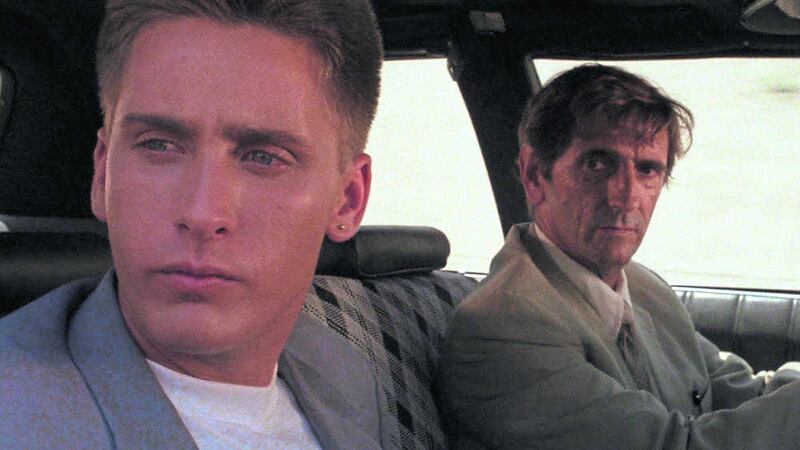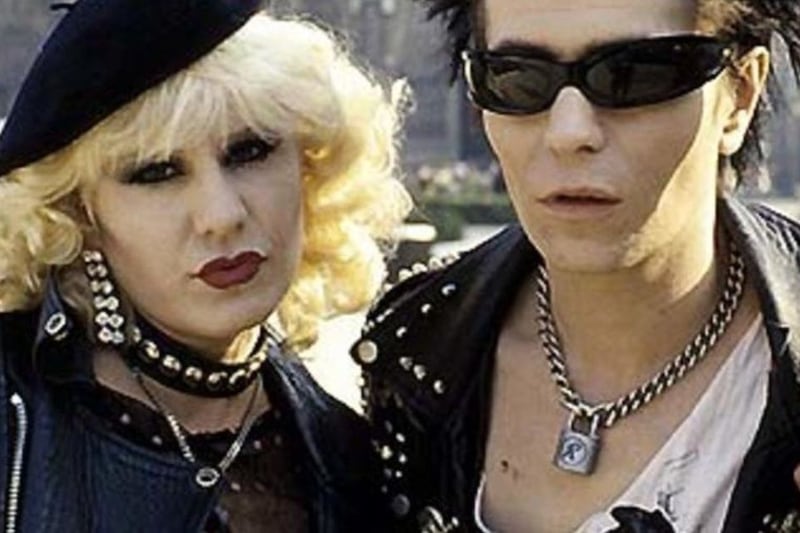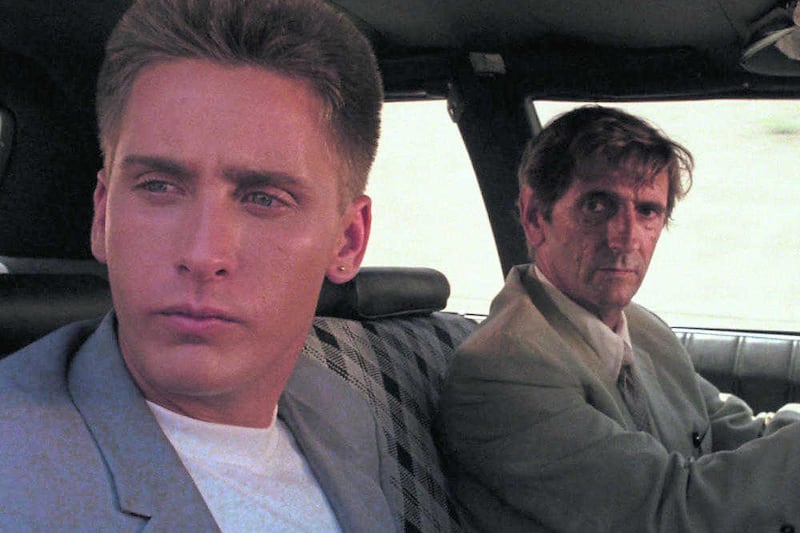ALEX Cox's first three feature films are a superb triple bill of 1980's 'punk rock' cinema.
Steeped in Cold War paranoia and the amusingly nihilistic attitude of the US hardcore scene which fed off it, Repo Man (1984) is the Cheshire-born UCLA Film School-trained writer/director's stylish, wickedly funny tale of LA car repossessors Harry Dean Stanton and Emilio Estevez caught up in a government scramble to reclaim a stolen nuclear McGuffin.
His Sid Vicious biopic Sid & Nancy (1986) starred Gary Oldman as the late Sex Pistol bent on self-destruction, while the following year's entertainingly violent and surreal romp Straight To Hell was a heist flick in authentic Spaghetti Western garb.
Featuring Joe Strummer, The Pogues (who also performed much of the soundtrack), Grace Jones and Elvis Costello, the latter film was born out of Cox's ill-fated idea to shoot a concert movie in support of the Sandinistas in Nicaragua, a cause which also fuelled the director's next project, Walker.
This deliberately anachronistic 'acid western' was actually filmed in Nicaragua during the Contra war, combining the true life story of 19th century American mercenary William Walker (Ed Harris) with contemporary elements not-so subtly symbolising Regan-era US interventionalism.
Universal Pictures refused to promote the film and subsequently blacklisted Cox – resulting in the director missing out on the chance to helm Schwarzenegger actioner The Running Man (1987) and Hunter S Thompson-adaptation Fear & Loathing In Las Vegas (1996).
"When the producers went to Universal to get more money, they told them 'off the record' that I wasn't 'an acceptable director'," explains Cox of being kicked off the latter project.
"Although apparently Terry Gilliam was – which kind of shows you what a crazed universe they inhabit."
However, you can't keep a good film-maker down: having helmed the BBC's hugely influential cult movie show Moviedrome from 1988 until 1994 (when Belfast's own Mark Cousins took over), Cox has continued to make independent features including the excellent Mexico-shot 1991 drama El Patrullero (Highway Partrolman), 1998's offbeat comedy 3 Businessman (in which he also starred) and 2007's misleadingly titled road movie Searchers 2.0.
"I think I've had more fun as a result of being marginalised," Cox tells me.
"If I had gone down the studio route I would have become a fairly mainstream Hollywood director, like Adrian Lyne (Fatal Attraction) or the lesser of the Scott brothers – making studio films and occasionally trying to squeeze in something I was passionate about.
"Instead, I've been able to work in different countries and cultures and to have more autonomy. I don't have any obligation to cast Hollywood movie stars."
The southern Oregon-based man's most recent projects are the forthcoming part crowd-funded feature Tombstone Rashomon based around the shoot-out at the OK Corral and his new book for novice film-makers, Alex Cox's Introduction to Film: A Director's Perspective (published by Kamerabooks.co.uk)
The latter stems from Cox's recent stint teaching 'intro to film' at the University of Colorado.
"Lots of 'non film' students took the course because they thought it was going to be easy," the director tells me.
"But, in fact, it was really, really difficult. All of a sudden, about 25 per cent of the class were being confronted by films by Bresson, Rossellini, Leone and Kurosawa for the first time, as well as rudimentary science like lenses, F-stops and the difference between lens and camera movement.
"All this is stuff you actually need to know if you're seriously interested in films and how they're made.
"A lot of the texts for that course are the size of phonebooks and full of theory, which real film people don't really ever think about at all during the practical process of telling a story.
"So, I thought a little book written from a director's point of view might help."
Cox, who completed a law degree at Oxford before studying film, believes that film-making is a collaborative process best suited to self-starters with a flair for rule-breaking.
"You are essentially on your own," he says, "but you need to find allies and partners, because film-making is a communal enterprise.
"Also, you don't sit around waiting to be given films: you come up with ideas that you can make with the resources and colleagues you have – and then you go and do it, without asking for permission."
Naturally, you'll make a better movie if you read his book first.
:: Alex Cox will be at Crescent Arts Centre, Belfast, on June 16 as part of The Belfast Book Festival. Tickets £8/£6 from Belfastbookfestival.com. Visit Alexcoxfilms.com.




